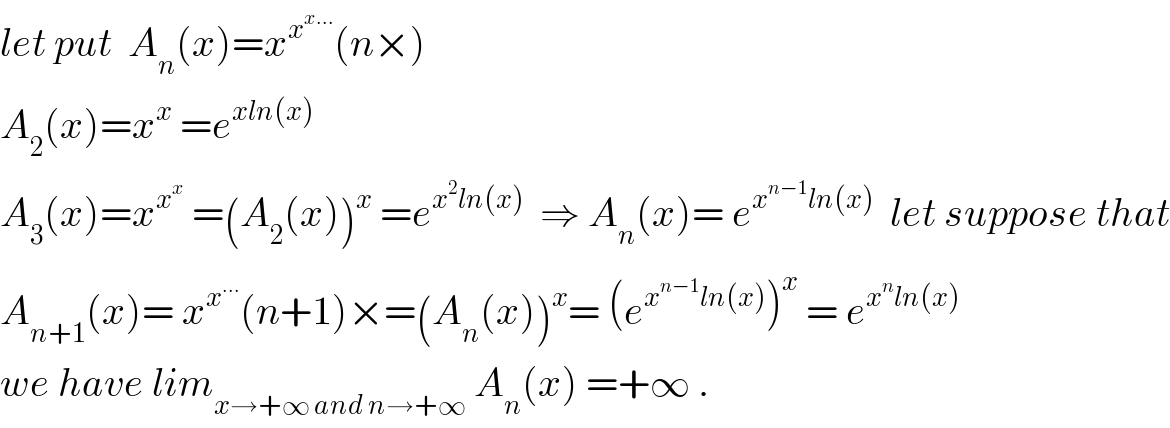
Question and Answers Forum
Question Number 36843 by Penguin last updated on 06/Jun/18

Commented by maxmathsup by imad last updated on 06/Jun/18

Answered by MJS last updated on 06/Jun/18

Commented by maxmathsup by imad last updated on 06/Jun/18

| ||
Question and Answers Forum | ||
Question Number 36843 by Penguin last updated on 06/Jun/18 | ||
 | ||
Commented by maxmathsup by imad last updated on 06/Jun/18 | ||
 | ||
Answered by MJS last updated on 06/Jun/18 | ||
 | ||
| ||
Commented by maxmathsup by imad last updated on 06/Jun/18 | ||
 | ||